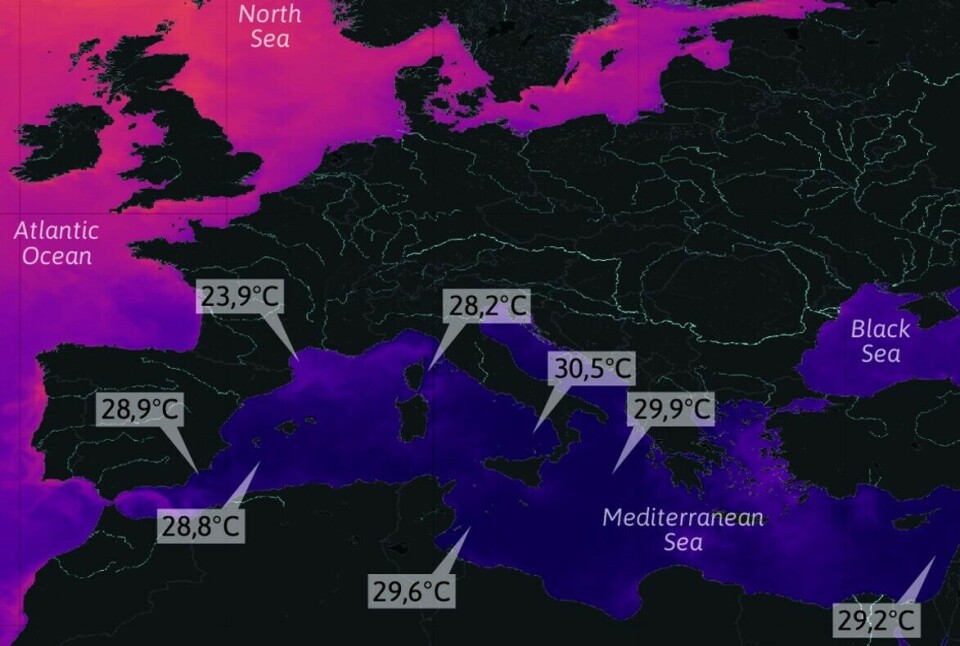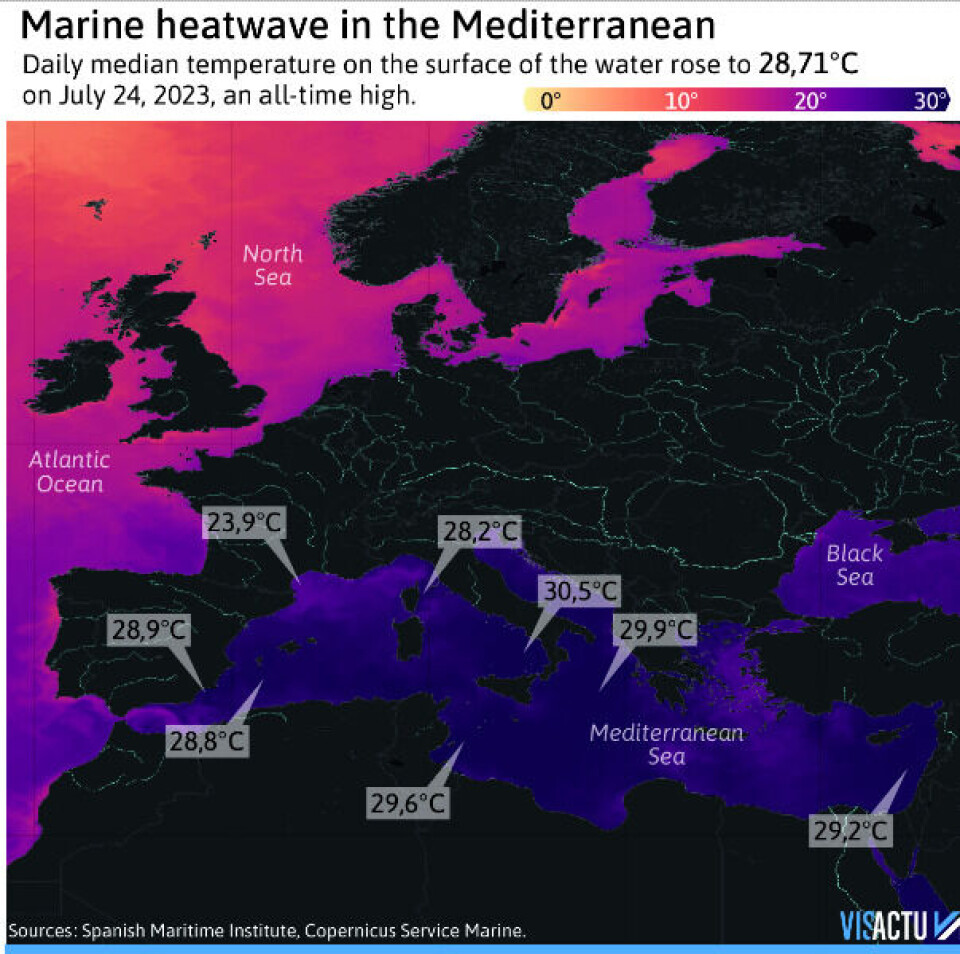-
Drinking tap water restricted for children in south-west France communes
Haute Garonne prefecture says the measure is precautionary and due to high chlorate levels
-
‘Trustworthy’ media label idea from Macron causes political storm in France
Comments prompted fierce political backlash from right but government insists it was taken out of context
-
French prime minister faces fresh problems to pass a 2026 budget
MPs continue to argue over budget but alternative measures could possibly see government toppled
Concern amid record temperatures in the Mediterranean Sea
The average surface temperature hit 28.71C around July 24, the highest since 1982

The temperature of the Mediterranean Sea has hit a record high this week.
Its average surface temperature hit 28.71C around July 24, beating the previous record of 28.25C set twenty years ago.
Researchers at the Barcelona-based Marine Sciences Institute said it was the highest temperature since 1982.
The temperature was measured using satellite data from Copernicus, the earth observation arm of the European Union’s space programme. Copernicus has yet to verify the record temperature.

Picture credit: Spanish Maritime Institute, Copernicus Service Marine / Visactu
Delphine Thibault, an associate professor in oceanography at Aix-Marseille University, told The Connexion that sea temperatures of 28C had been recorded recently near Marseille.
The waters near Menton, meanwhile, hit 29.47C on July 21, she added.
Previous article: Heatwave-hit south of France set for respite by the weekend
Previous article: Southern France on heatwave alert after temperature records broken
Dr Thibault went on to discuss the dangers of a warmer Mediterranean Sea.
“85% of red gorgonian coral died last year because of the heat,” she said. A similar scenario played out in 1999, she added.
“28 degrees is high. We need to see if it is on track to be sustained for weeks,” said Dr Thibault.
But she clarified it is much worse if such surface temperatures are replicated at depths of 30 or 40 metres, as was the case last year.
Dr Thibault added warmer temperatures could bring creatures that usually inhabit hotter waters - such as the red lionfish, rabbitfish or the rhopilema nomanica jellyfish - nearer to France. That, she added, could change the entire marine ecosystem.
Read also
Worries over fish and ecosystem as Mediterranean sea set to reach 30C
Temperatures to climb once again in France, breaking seasonal records
























